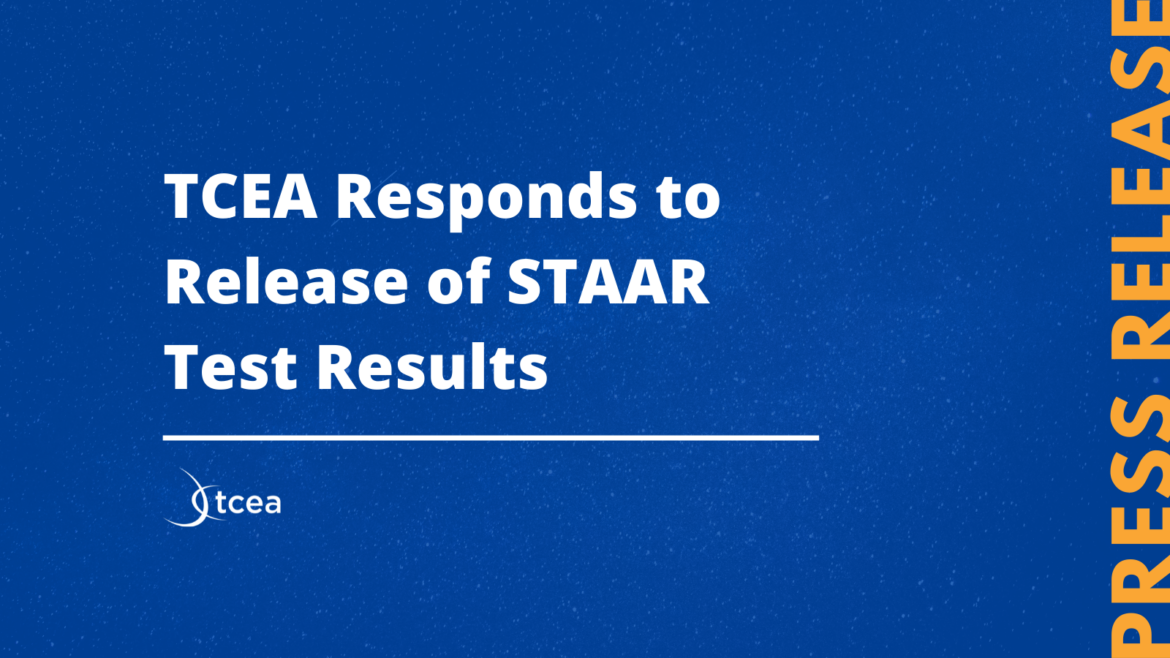Note: This post was originally published on TCEA.org.
Texas educators provided heroic service to their students and communities over the last 16 months. In dire, ever-changing conditions, they responded with heart and hard work to a challenge that has changed all of our lives — and TCEA commends the remarkable things our dedicated educators continue to do, whether making learning work remotely or in person.
Today’s report from TEA, reviewing a set of results limited to math and reading STAAR tests for 2020-21, underscores the need for improved preparation and the coordination of best practices for learning with technology so that educators can be better prepared for the next challenge than they were for this one.
Many educators were left with little guidance on implementing technology, constantly changing tools and requirements, and changes to many of the traditional incentives to test preparation. Notably, the consequences of state testing were relaxed, so that many students would not be held back due to test scores, all while students and families alike struggled with issues like limited access to high-speed internet, economic impacts, changes to daily routines, and even the death of loved ones lost to the pandemic.
When the pandemic struck, Texas schools and districts were already under-resourced to understand the ways technology could complement their teaching strategies, whether on campus or online. As health precautions initiated a necessary break from not only in-person schooling, but nearly all in-person interactions, educators were left trying to understand new and changing learning management systems, hunting for professional development that was up to the times, and having almost no time to acclimatize themselves to remote learning environments. During this time, schools implemented remote learning, in which the entire learning process occurs online. Many types of teaching with technology, like virtual learning and blended learning, involve a mix of in-person instruction and support through virtual tools. That means that the challenges faced with the unexpected move to remote learning cannot be understood as a general indictment of learning with technology.
Furthermore, educators were tasked with building positive relationships with students and families who were beset by rapidly-evolving circumstances, all while educators themselves were working through such a tough time themselves.
We’ve clearly seen the importance of social-emotional learning over the course of the pandemic. With loosened requirements, stressed educators, and students struggling with the life-altering changes of a pandemic, teachers and administrators should be praised for building positive relationships with students and helping prevent even greater learning loss.
At TCEA, we put our knowledge and our network into action, sharing free resources for remote learning, hosting successful professional learning events online, and developing dozens of new online, self-paced courses to help teachers gain confidence in research-backed instructional practices for technology use and integration, from effective math teaching to remote and blended learning.
“In the past 16 months, we’ve seen a remarkable effort by teachers, administrators, parents and guardians, and entire communities all uniting to make learning happen in the most difficult and unexpected circumstances. Educators worked hard, despite these challenges, to prevent learning loss at a time when students and teachers alike were struggling with little time to implement new ways of teaching and learning, little guidance on the best practices of remote learning, and with their own lives turned upside down,” said TCEA executive director Lori Gracey.
“It’s my hope that greater focus and clarity can be brought to the ways we teach with technology. It’s one of many tools educators can use, and one that cannot be ignored. TCEA is working with a purpose to ensure that educators have the confidence they need to use technology to reach every student, no matter the conditions.”
As we look forward, we hope this report illustrates the need for greater resources, collaboration, and coordination when it comes to digital teaching and learning. The kind of remote learning put into place in 2020-21 was a stopgap, and not the thoughtful implementation of tested ideas that should define online learning, much less any kind of educational technology.
Further, this time has shown us that technology is not going anywhere. In fact, it is growing. If we hope to truly prepare students for their lives after the test, we must understand that remote work is growing, and that technology literacy and skills are vital for our children — and their educators — to be prepared for whatever the future holds.

